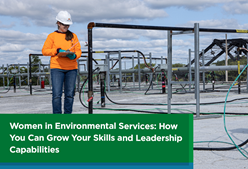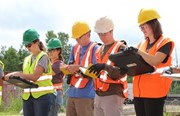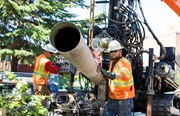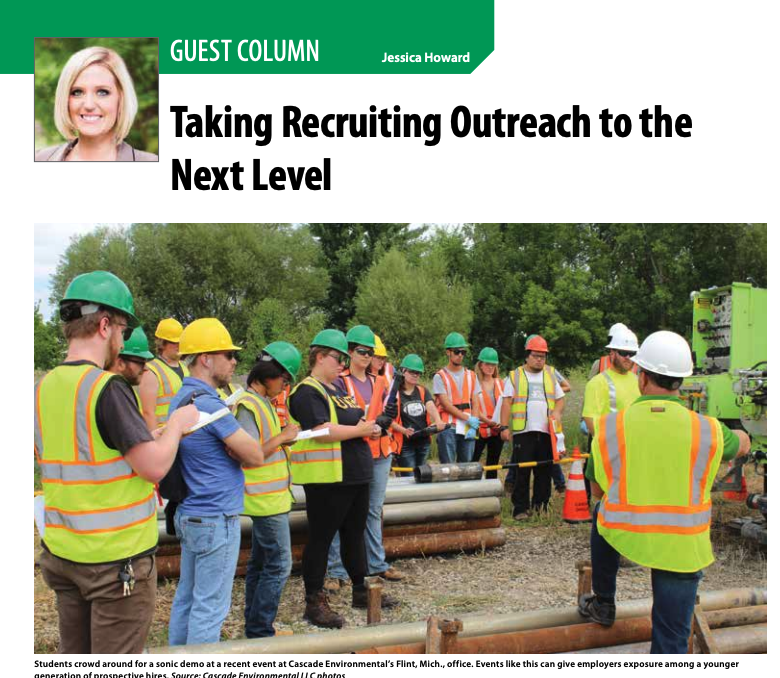How to Grow Your Drilling Career
By: Jessica AlexanderIt can be challenging to set goals and find opportunities that will push your career forward—and that is especially true in niche industries like drilling services. Luckily, there are resources available that can aid in career progression and advancement. Whether you’re just considering a drilling role or are several steps into your career, this blog post will help you identify ways you can grow professionally in this industry.
EDUCATION & TRAINING
Formal education typically isn’t required for driller assistant or driller roles, but they can certainly give you a leg up. There are two colleges in Canada and three in the US that offer drilling education programs.
In the Resources Drilling program at Fleming College, students are taught “foundational theory, techniques and methods relating to all types of drilling, with an emphasis on safe working practices, while learning to operate a full range of drilling equipment hands-on.” Graduates of the program are prepared for successful careers in construction drilling, geotechnical or environmental drilling, water well drilling, resources drilling, or horizontal directional drilling.
The Water Well Driller program at Red Deer College teaches concepts surrounding the operation of mobile rotary, boring or cable tool drilling rigs used to drill residential, commercial and industrial water wells.
The programs offered in Canada are fairly comprehensive, but that doesn’t mean there aren’t educational opportunities in the US.
The Well Construction Technology program at Southwest Mississippi Community College “provides classroom and laboratory instruction in the use of rotary drilling and related equipment used in drilling for water, petroleum, and environmental or geo-technical operations.” A significant perk of this program is that Well Drilling Operations Technicians may apply for their Mississippi Water Well Contractor’s License after completing the program and one year of field experience.
A Midwest option is the Hydrogeology Field Course offered at Western Michigan University, which provides foundational knowledge to students on “aquifer testing, environmental surface geophysics, groundwater sampling and monitoring HAZWOPER training, remediation and well drilling and installation.” The program is hands-on and one of the few hydrogeology programs offered in the United States.
If attending a traditional program at a university or college is not the right path for you, there are online options that can provide more flexibility. For example, the International School of Well Drilling (ISWD) offers online courses, and is approved by 27 states as a source of renewing drilling license requirements. According to the ISWD website, the school’s purpose is to offer continuing education credits to those in the water well, environmental and geotechnical sectors of the drilling industry. Some of the courses currently offered include:
- Basic Geology
- Drilling Safety
- Geothermal Heating and Cooling Systems
- Groundwater Basics
- State Statutes and Rules (currently offered for Mississippi, Oklahoma, and Texas)
- Well Abandonment
- Well Development
- Well Rehabilitation
In addition to completing training and certification programs, self-study and research is an excellent way to advance your career. There are free resources that can be found online, such as podcasts or webinars, that provide subject-specific knowledge. For instance, Cascade provides blogs and webinars that are available to the public.
PROFESSIONAL MEMBERSHIPS
Entrepreneur and motivational speaker Jim Rohn once said, “You are the average of the five people you spend the most time with.” The people you know and are around influence you, especially when it comes to your career. That’s why membership in professional associations can be so beneficial. In the drilling industry, there are a few organizations that stand out, and one of them is National Groundwater Association (NGWA). The NGWA is an excellent source of leadership, knowledge, and resources for those in the groundwater industry. Through the NGWA, drilling professionals have the ability to:
- Gain new experiences through volunteering for a committee or task force
- Attend conferences hosted nationwide by experts in the field
- Access on-demand courses online and recordings of past conferences and events
- Read up on current trends through blogs, publications, and press releases
- Review environmental services jobs posted on the sponsored job board
- Obtain NGWA certification materials and exams
- Connect with and learn more about state affiliate organizations
- Learn more about the field through the “All About Groundwater” Fundamentals
Another excellent organization is the National Drilling Association (NDA). Similar to the NGWA, the NDA has a sponsored job board, hosted conferences, and online and print resources and recordings. There are also numerous professional trainings and certifications available through the NDA, such as:
- Drilling Safety Certifications
- Groundwater Knowledge Certification
- Monitor Well Construction Certification
- Basic Geotechnical Procedures Qualification 101
The NDA also provides detailed information for obtaining state Water Well Driller Licenses.
ON-THE-JOB EXPERIENCE
While education, training and certifications certainly help move your career forward, nothing can replace the value of on-the-job experience and training in the field. To make the most of your on-the-job training, be sure you’re keeping these best practices in mind:
- Find a mentor, if you don’t already have one, with a high level of field knowledge and experience (such as a Senior Driller).
- Ask questions if something is unclear—unasked questions are a huge missed learning opportunity!
- Be observant and take mental note of what’s happening on a project site. The more familiar you become with all aspects of the project, the more you’ll learn.
- If you learn a new concept in the field, research it! Learning doesn’t stop when you clock out—take a bit of extra time when you return home to learn more about the new concept and solidify the new information.
- Ask for feedback. Career growth doesn’t happen if you don’t understand your own strengths and weaknesses or how to improve. Be sure to talk with your supervisor frequently and request either a performance review or informal feedback every six months.






